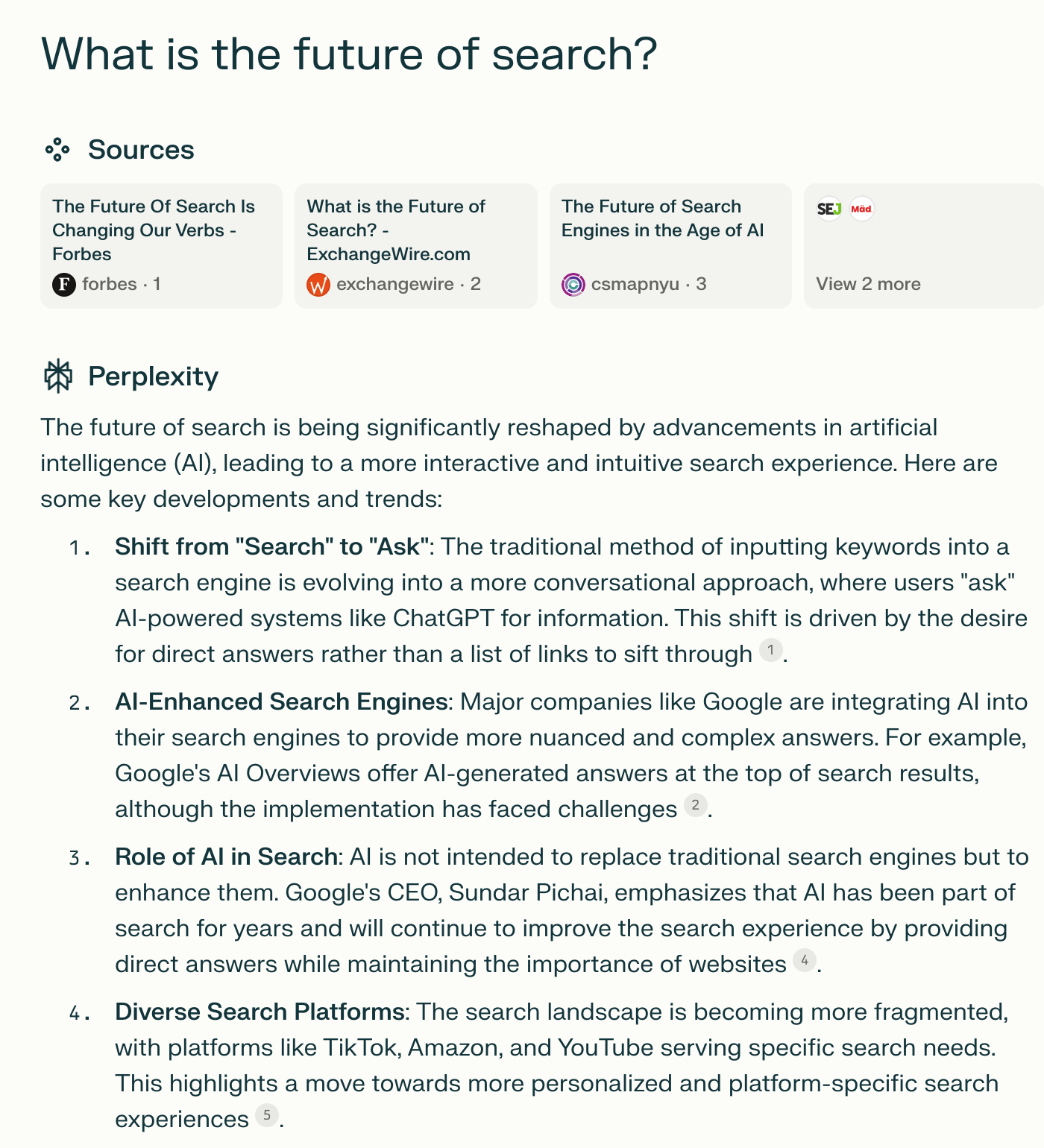The Future of Search: AI-Powered Transformation

In the rapidly evolving landscape of artificial intelligence, traditional marketing playbooks are quickly becoming obsolete. As AI chatbots like ChatGPT, Perplexity and Exa reshape how consumers search for and interact with information, businesses must adapt their growth strategies to remain relevant and competitive.
The Shifting Search Paradigm
The rise of AI-powered search assistants marks a significant departure from conventional search engine optimization (SEO) tactics. Users are increasingly turning to conversational AI interfaces for quick, personalized answers, bypassing traditional search engine results pages. This shift necessitates a fundamental rethinking of how brands approach visibility and discoverability.
How AI is Transforming Search
- Natural Language Queries: AI systems excel at understanding and responding to conversational, human-like questions, moving away from keyword-based searches.
- Intent Recognition: Advanced AI can better interpret the user's underlying intent, providing more accurate and relevant results.
- Personalized Results: AI-powered search takes into account user history, preferences, and context to deliver highly personalized results.
- Real-time Information Synthesis: Instead of simply returning links, AI can synthesize information from multiple sources to provide comprehensive answers.
- Multi-modal Search: AI is enabling more sophisticated image and voice searches, expanding beyond text-based queries.
AI Evaluation of Website Trustworthiness
AI systems are becoming increasingly sophisticated in evaluating the trustworthiness and relevance of websites, especially when it comes to specific products:
- Content Quality Assessment: AI analyzes the depth, accuracy, and uniqueness of content, favoring well-researched, original information.
- User Engagement Metrics: AI considers factors like time spent on site, bounce rates, and user interactions to gauge content value.
- Backlink Analysis: The quality and relevance of backlinks remain important, with AI better able to discern natural link patterns from artificial ones.
- Brand Authority: AI systems recognize established brands and authoritative voices in specific industries.
- Data Consistency: Consistent information across multiple trusted sources increases a website's credibility in AI evaluations.
- User Reviews and Sentiment: AI analyzes user reviews and overall sentiment across various platforms to assess product and brand reliability.
- Technical Performance: Website speed, mobile-friendliness, and overall user experience factor into AI trustworthiness assessments.
Reinventing Marketing for AI
To thrive in this new era, companies must:
- Optimize for Conversational AI: Develop content that aligns with the natural language processing capabilities of AI chatbots. This means focusing on clear, concise, and informative content that directly addresses user queries.
- Prioritize Brand Authority: As AI systems often prioritize reputable sources, establishing your brand as a thought leader in your industry becomes crucial. Invest in creating high-quality, authoritative content that AI is likely to reference.
- Embrace AI-Powered Analytics: Utilize AI tools to gain deeper insights into customer behavior and preferences, allowing for more targeted and effective marketing strategies.
- Personalization at Scale: Leverage AI to deliver hyper-personalized experiences to customers, enhancing engagement and loyalty.
- Ethical AI Integration: Incorporate AI into your marketing efforts responsibly, ensuring transparency and maintaining consumer trust.
- Structured Data Implementation: Use schema markup and other structured data formats to help AI systems better understand and categorize your content.
- Voice Search Optimization: Adapt content for voice search queries, which are often longer and more conversational than text-based searches.
Redefining Brand Value
In an AI-driven world, brand value extends beyond traditional metrics. Companies must now consider:
- AI Compatibility: How easily can your brand be understood and recommended by AI systems?
- Data Quality: The accuracy and relevance of your digital footprint will directly impact AI-driven recommendations.
- User Experience: Seamless integration between AI interfaces and your brand's digital presence is crucial.
- Trust Signals: Implement clear trust signals (certifications, transparent policies, expert endorsements) that AI can recognize and value.
- Cross-platform Consistency: Maintain consistent brand messaging and information across all digital platforms to reinforce credibility to AI systems.
Conclusion
The AI revolution demands a radical reimagining of marketing and growth strategies. By embracing these changes and innovating accordingly, brands can not only survive but thrive in this new era. The key lies in adaptability, authenticity, and a willingness to explore the uncharted territories of AI-driven marketing. As AI continues to evolve, so too must our approaches to building and maintaining brand value in this dynamic digital landscape.
*** This is a Security Bloggers Network syndicated blog from Meet the Tech Entrepreneur, Cybersecurity Author, and Researcher authored by Deepak Gupta - Tech Entrepreneur, Cybersecurity Author. Read the original post at: https://guptadeepak.com/the-future-of-search-ai-powered-transformation/

